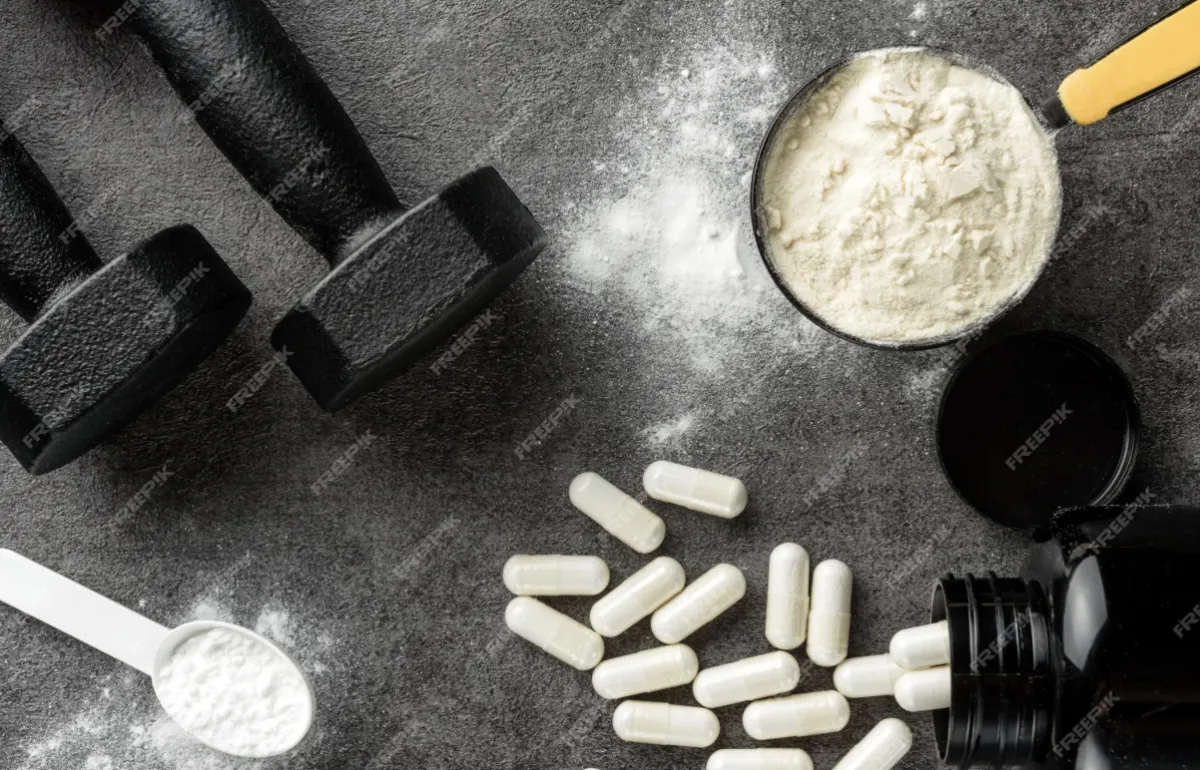
It's Not A Magic Pill.....But It's Close...
Creatine has been studied for decades but researchers continue to discover ways it supports health, especially as we age.
What is creatine?
Creatine is a natural compound your body makes from amino acids, the building blocks of protein. You get small amounts from meat and fish.
Most of it's stored in your muscles, where it acts like a backup battery, providing quick energy for short, activity bursts like climbing stairs, standing up, or lifting groceries.
It’s also stored in your brain, supporting mental performance and brain health.
Why consider a supplement?
While your body makes creatine, not everyone stores or uses it efficiently—especially older adults, plant-based eaters, and people under chronic stress. Levels also decline with age.
Some experts view creatine as a longevity supplement that protects against age-related decline in both body and brain.
Younger people may benefit when the brain is under stress, like during sleep loss or mental fatigue.
Researchers have found that supplementation may support:
Muscle strength in aging
Recovery from illness, injury, or surgery
Memory, focus--even mood!
Fatigue resistance
Blood sugar regulation
Bone density and cardiovascular health
👉 Creatine works at the cellular level. If you have a heart attack or stroke, it mitigates the damage because it’s protecting those cells.
What else does the research show?
Creatine improves memory and thinking speed within 3 hours in sleep-deprived people.
People with Alzheimer’s often have lower creatine levels in their brains.
It supports bone strength, lowers LDL cholesterol, and helps manage blood glucose.
It can be beneficial for children and pregnant women.
Is it safe?
Yes—for most people. Creatine is among the most studied supplements worldwide, with a strong safety record at recommended doses (3–5 grams per day).
If you have kidney disease or take medications that affect kidney function, check with your doctor. Some people may notice mild bloating at first, but this usually fades.
Creatine may be especially helpful if
You're over 40 and want to maintain strength
You’re recovering from illness, injury, or surgery
You eat mostly plant-based
You feel weak or tired doing everyday tasks
You’re dealing with brain fog or low mood under stress
What kind should you take?
Stick with creatine monohydrate. It’s the most researched, affordable, and effective form. Look for a plain powder without added sugars or fillers.
Take 3–5 grams daily, mixed into water, coffee, or your favorite beverage. I add it to warm water, which helps it dissolve, and have it with some sort of carbohydrate, which some say enhances absorption.
One researcher commented, “If you’re going to be spending your money on a nutritional supplement, I think it’s the one to choose.”
But it’s not a magic potion. You’ll still need to practice a healthy lifestyle and do strength training.
You might consider it a natural "performance-enhancing" supplement. 😉